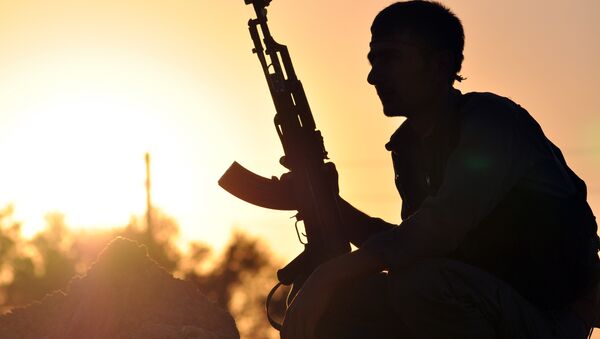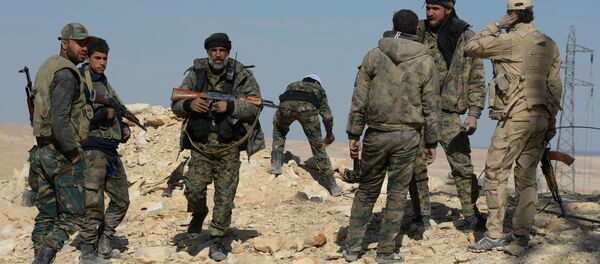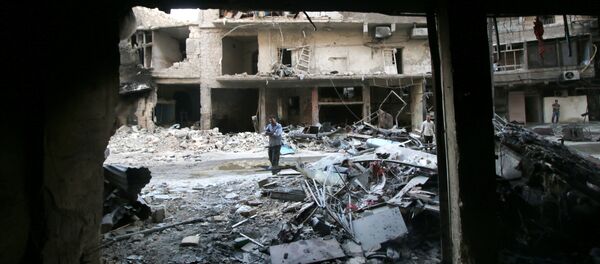"The unbroken expanses of territory under [Daesh] control are mostly empty desert," a team lead by analyst Omar Lamrani said in its latest report for Stratfor. "A look at the group's three core Syrian areas – northern Aleppo province, Raqqa and [Deir ez-Zor] – shows how the [terrorist groups] is steadily losing ground across its scattered, self-declared empire."
Things are not going well for Daesh in these regions.
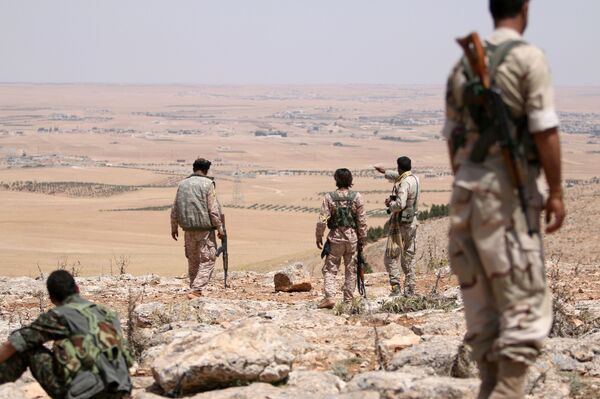
Northern Aleppo – a three-thronged siege
The Syrian province of Aleppo is crucial for Daesh's survival since the terrorist group relies heavily on the steady flow of foreign fighters, weapons and supplies smuggled through Turkey. The majority of these routes have already been cut off by the Kurds, the few that remain (like the city of Manbij) are expected to be freed soon.
In northern Aleppo, Daesh has been pressed from three sides. Damascus-led forces, assisted by Russian warplanes and their local allies have advanced from the south. The US-backed Syrian Democratic Forces (SDF) are pushing west across the Euphrates River, while rebels from the city of Azaz are advancing to the east. In addition, Turkey has shelled border regions from the north.
"But there is another loyalist offensive underway that, if it pans out, will pose an existential threat to the [Daesh's] northern Aleppo zone by completely cutting it off from the rest of the group's Syrian territory," the analysts said, referring to the offensive on the city of Tabqa, located on Lake Assad in the province of Raqqa.
If successful, this operation will cut the road linking northern Aleppo and Raqqa, the capital of the terror caliphate.
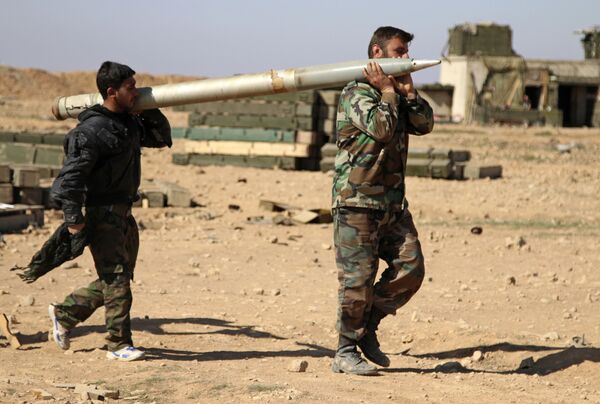
Raqqa – Daesh capital's imminent fall
The SDF and the Syrian Arab Army (SAA) are slowly advancing on Raqqa. The analysts described their progress as "methodical" but to an extent hampered by the need to train new SDF fighters. Yet they don't doubt that the city will be liberated.
Not only is the city the capital of the Daesh empire, "it is also an important hub for people and supplies," they explained. "Raqqa sits on the Euphrates River and is key to controlling several critical highways in Syria. It is also one of the largest populated cities in the Islamic State's control and an important economic center surpassed only by Mosul, Iraq."
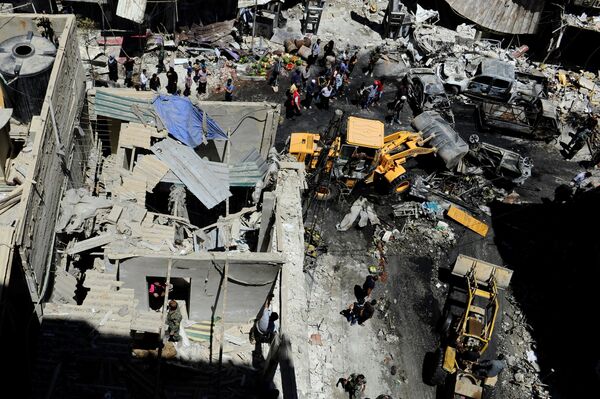
Deir ez-Zor – oil-rich gateway province
Unlike northern Aleppo and Raqqa, Daesh-controlled territories in Deir ez-Zor are not under immediate threat. "The city itself is contested by [Daesh] forces and loyalist troops, but the militant group fully controls the rest of the province," the analysts noted.
For government forces and the SDF, liberating Deir ez-Zor is not an immediate priority, although the SAA could use its success in Palmyra to mount an offensive on the province, but Jordan, the US and the UK have created a new anti-Daesh force, known as the New Syrian Army, in the region.
Despite these developments, Daesh, a resilient group capable of adapting to changing circumstances, will not go down without a fight. As the militants are increasingly losing their conventional capabilities, they will once again turn to terrorism to wreak havoc in the country and beyond.
"Unable to effectively field and supply conventional fighting units, the Islamic State will turn to insurgent tactics and terrorist tradecraft to lash out at targets. Instead of focusing on controlling territory, the group will use insurgent methods to gain the flexibility and mobility needed to stage hit-and-run attacks on its enemies in an effort to gradually weaken them," the analysts observed.

